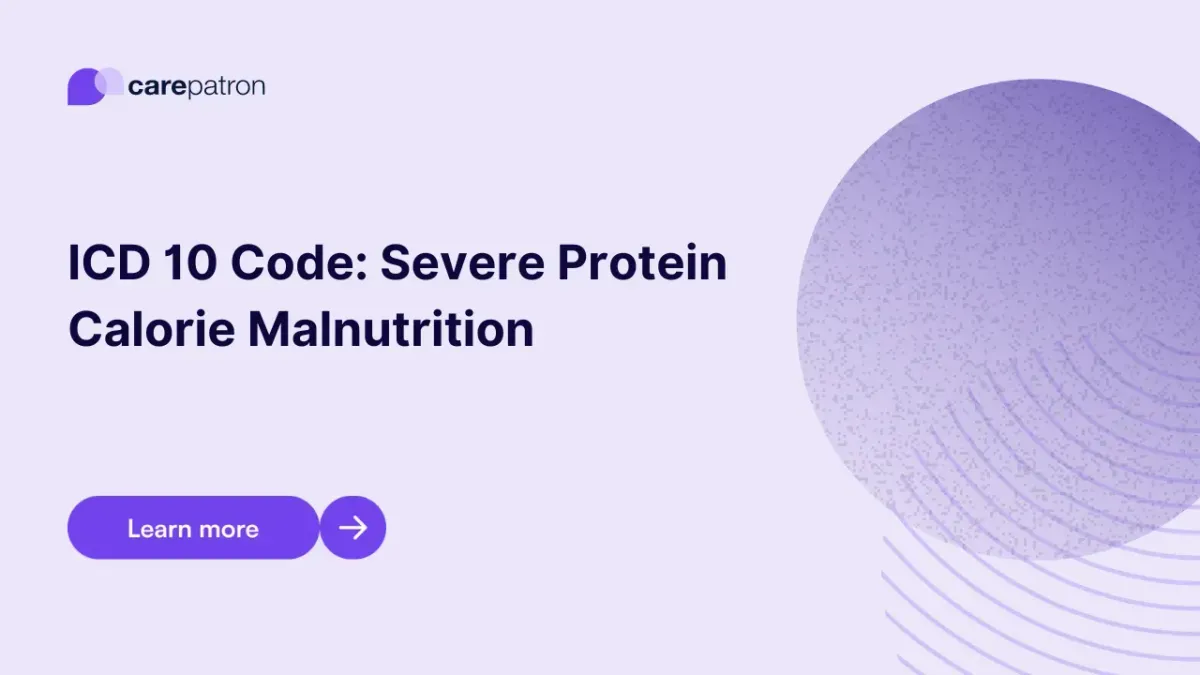
Severe Protein Calorie Malnutrition ICD-10-CM Codes
Explore ICD-10-CM codes for severe protein-calorie malnutrition. Learn about common codes, billable statuses, and gain insights in this comprehensive guide.
Use Code
Commonly asked questions
Marasmus is a form of severe malnutrition characterized by a deficiency in both calories and protein. Kwashiorkor, on the other hand, is severe malnutrition primarily characterized by a lack of protein. Marasmus results in muscle wasting and emaciation, while kwashiorkor often causes edema (swelling).
Treatment includes providing adequate nutrition through a balanced diet, typically with therapeutic feeding programs. In severe cases, hospitalization and intravenous feeding may be necessary. Medical supervision is crucial.
Severe malnutrition can result from inadequate food intake, poverty, disease, lack of access to clean water, and other socioeconomic and environmental factors. It is often associated with conditions of extreme poverty and food insecurity.
EHR and practice management software
Get started for free
*No credit card required
Free
$0/usd
Unlimited clients
Telehealth
1GB of storage
Client portal text
Automated billing and online payments
